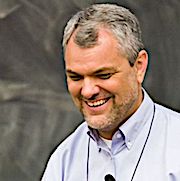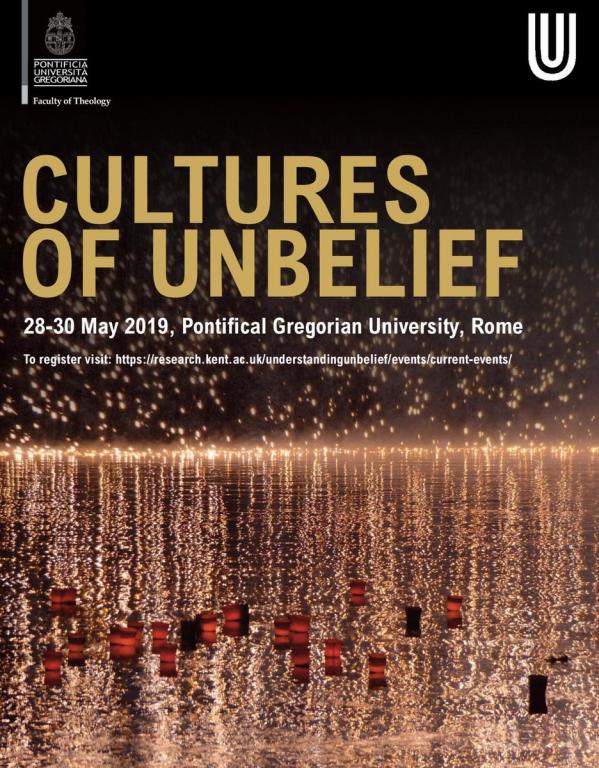
10 min read
So you aren’t a supporter of President Donald Trump. Good, me neither. It’s the right choice. But I think we take too much credit for making that right choice.
When you saw the headline, you probably thought, “Because I’m not an idiot,” or “Because I’m not a racist or a misogynist,” or “Because I have a goddamn moral center.” But those are only proximate causes. Even if each one is true, there’s a next question: Why are you this non-idiot, non-racist, non-misogynist, moral person?
For years I gave myself too much credit for my progressive views. I had somehow just reached down deep inside by force of will and thought my way out of ignorance, empathized my way out of hate. But eventually I wondered what the difference is between my claim of scrappy self-reliance and the conservative claim that the poor, people of color, women etc. just need to bootstrap themselves up to all the good things enjoyed by rich white men.
Liberals recognize those as privilege issues. People don’t all start with the same advantages, and the uneven outcomes have more to do with structural inequality than lack of effort. My privilege makes things easier in a way that is unearned. Part of being politically progressive is acknowledging that, recognizing what others are up against, and doing what we can to even the playing field, even as we deal with the immediate consequences.
And just in case your Spidey Sense is tingling: No, this is not going to be another apologia for the white working class, run over by the wheels of economic change or whatever. This is something else. Whether it’s any more useful is your call.
Who We (Still) Are
We think of 21st century humans as obviously smarter than we were in the Paleolithic, and collectively, that’s clearly true. But not one of us is born knowing how to plant wheat, do heart surgery, play the piano, or understand calculus. In every case, we exhibit this intelligence only by reaping the benefits of millennia of cultural evolution. And every bit of the reaping happens after we are born.
On the face of it, this is obvious. But we often have this unarticulated sense that we’re “born modern,” that the Scientific Revolution and the Enlightenment and whatever halting progress we’ve made in racial and gender equity were all somehow present in us at birth in a way they were not in a Stone Age newborn.
It’s not true. People 50,000 years ago were anatomically modern. We have brains functionally identical to theirs. We are as unmarked at birth by all that scientific and cultural progress as a Paleolithic child would have been.
We’re all essentially born in the Stone Age. Then we have about 7,000 days to catch up on 50,000 years of cultural evolution, becoming fully functional adults in the modern world — or failing to do so.
Picture cultural evolution, the amassing of knowledge and experience on which the modern world is built, as a line ascending gradually left to right over 50,000 years. It dips and rises, but the net direction over time is positive. Each individual is still born at that Stone Age baseline, down below the rising line of culture. Then billions of individual lines arc up toward the collective culture line as it passes overhead, most of us topping off well below the line itself. How far below is the question.
During childhood we’re brought from the Stone Age into the modern world by parenting, education, and experience. And depending on countless factors, that process varies in effectiveness.
The task is made more difficult by something else we share with Paleolithic people: a set of tendencies, fears, and limitations forged by life on the African savanna. More than 120,000 hominid generations were spent at the edge of extinction before we began to settle into more stable agricultural communities 11,000 years ago. Only 500 generations have passed since then, and just 20 generations since the start of the Scientific Revolution. That’s too little evolutionary time to shape our brains in any significant way.
There are some physical benefits to entering the world through a 21st-century mother, like better pre-natal care. But as far as the functioning brain is concerned, the last 11,000 years haven’t even happened.
Our natural instincts aren’t meant to help us make good decisions traveling 70 miles per hour in a metal box surrounded by other great apes doing the same, or even while standing in front of an open refrigerator. Yet it’s those misplaced instincts we’re born with. Five hundred generations is an evolutionary whisper as the speakers of the Paleolithic continue to play at 11, which is why it takes so little to push the Paleolithic button in our heads.
Back to our current nightmare, already in progress.
Most of What I Know About Opposing Trump I Learned in Kindergarten. Or Before Kindergarten. Or Didn’t Have to Learn at All
You and I can both list 100 reasons that supporting Trump is not only wrong but obviously, blindingly wrong. So why does anybody fail to see that?
Even though Trump supporters are in the political driver’s seat right now, I wouldn’t trade places with them for the world. I have my own mess of shortcomings, but this I got right. And by finding myself on the outside of the immoral, frightened, hateful, ill-informed, easily-manipulated mess Trump supporters are currently mired in, I’m in the privileged position, not them — and I didn’t bootstrap myself into it.
I’ve experienced less fear and insecurity than most people, especially when I was young, which helped my Paleolithic buttons stay unpushed. That’s one reason I’m not a social conservative, one thing that made it easy for me to value and accept diversity instead of being instinctively threatened by it.
I got a broad critical education and was allowed to think freely, encouraged to explore the world around me and to find it wonderful, all of which made me less vulnerable to manipulation by demagogues.
College isn’t necessary or sufficient for this. The right teacher in eighth grade can help you see how motivated reasoning gets in the way of seeing the world clearly, then get you asking the right questions for the rest of your life. Some people never have that teacher. And I’m a blind and dumb progressive if I can’t acknowledge that many others missed out on that for reasons out of their control, and recognize that education itself strongly pushes in one direction politically.
I didn’t have a disempowering life crisis before I developed the personal resources to manage such a thing, so I never had to retreat too far into the cave of my innate fears.
Then there’s empathy, a massive deficit for most Trump supporters. Most of the reasons I oppose this administration have nothing to do with me or my family. It’s empathy for more vulnerable people that makes me sick and angry and motivated to get us to the other side of this. And I didn’t just will myself into that empathy — I had help.
I felt safe growing up. My parents were not authoritarian, my economic and racial bubble was permeable, and I never attended a dogmatic church that spent Sundays and Wednesdays replacing my curiosity and empathy with tribalism and fear. I was never frightened with hell or made to question my own worth. Some people had these deficits but still found their way out by drawing on other privileges. Others had too steep a climb.
Then there’s the temperamental or even genetic predisposition toward anxiety and a high startle reflex, measurable as early as age four, that the longitudinal Block and Block study found to correlate highly with political conservatism later in life.
If I swapped my genes, my upbringing, my education, and my experiences for those of the most die-hard Trump supporter in my family, I would have supported Trump. And most of that is out of a person’s control.
The fact that many people I know and love were largely robbed by circumstance of the ability to function in a world in which comfortable categories are disrupted, once easy moral answers are seen as immoral, and humans are paradoxically both cosmically unimportant and capable of killing the planet — that fact complicates my response to the cultural bonfire they’ve set. Even as I work like hell to contain the spread of that fire, I find it hard to simply yell “Racist!” or “Idiot!” as if we all had the same shot and they just made worse choices.
Yes, it’s hard to grant all this when they are standing on the necks of the most vulnerable, claiming persecution while ignoring their own rampant privilege, hooting and grinning and lying without a trace of shame, and doing their level best to turn back the clock on the very things that have lifted us all out of the muck. They are hardly sympathetic victims here.
That doesn’t make the privilege gap any less real.
We can argue by exceptions (“I was in a terrible school/church/family and I turned out fine,” etc.), but the bottom line is this: Somewhere, at some level, I had advantages that made it not just possible but easy and obvious for me to reject what Trump and Co. are selling. It wasn’t all my doing. Many others lacked at least some unearned privilege that I have had, and as a result have found themselves in thrall to this madness I was never at risk of falling into myself.
So what do we do with this? I think it’s like any newly-discovered privilege. In the long run, you work to level the playing field. But for now, I’ve been sitting with it to see how it changes things. No, it doesn’t absolve them of all responsibility, and it doesn’t stop me from opposing toxic ideas and actions. But recognizing the un-level playing field changes a lot for me.
A world that has been not only infuriating but baffling to me for two years started coming into focus. My blood pressure went down, as it does when things start making sense, and I started talking to and about people differently, and looking at the current culture war in a new way.
The idea of fixing this kind of culture split is incredibly daunting. It’s probably too late to do much for those over a certain age, other than restrain their thrashing arms with the most compassion we can manage, gently prying Congress and the nuclear codes out of their grip. The next generations are where the real hope is, helping our kids and grandkids fully join the 21st century. It’s not just about knowledge — they also need confidence, empathy, and security.
And as it turns out, we know from child development research just how to give them those things.
You start with a responsive and stable home life. Build a strong attachment with parents and other significant adults. Don’t hit or humiliate them or let others do so. Encourage them to challenge authority, including your own. Make them comfortable with difference. Use knowledge to drive out fear. Build a sense of curiosity and wonder that will keep them self-educating for life. Let them know that your love and support are unconditional. Teach and expect responsibility and maturity. Encourage self-reliance. Help them find and develop “flow” activities and lose themselves in them.
With any luck, they will spread that confidence and security to others more effectively than we have done, and our generation can take our jittery Paleo-arsonist tendencies with us to the void.
















